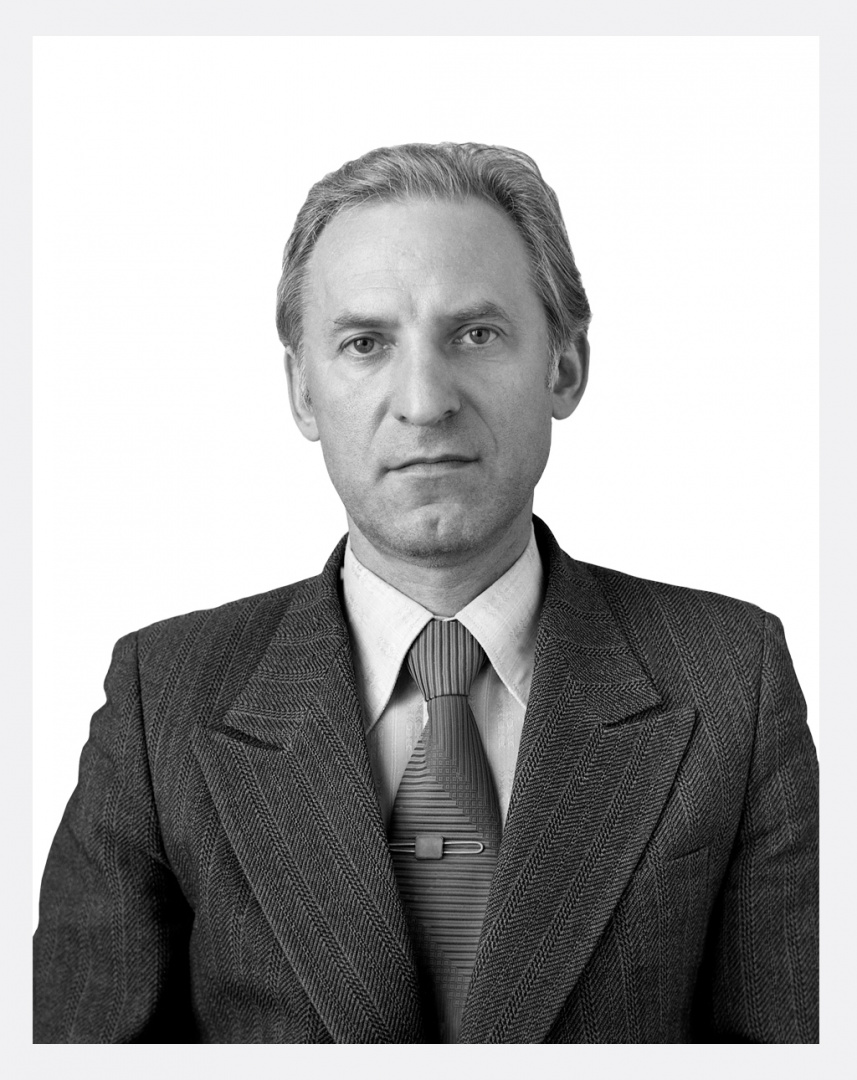RIPI Chief Scientist

Alexey Fedorovich Kalinin is the legendary scientist in the history of our Institute. He laid down the foundations for RIPI’s technical school. An acronym, formed from the first letters of his name – AFEK - is part of the decimal number of the instrumentation, designed in RIPI.
Several generations of command-and-measurement systems (CMS) and ground-based spacecraft control complexes (GSCC) were constructed with the personal participation and under the leadership of Alexey Fedorovich Kalinin. The progressively increased command radio links within the VHF band ensured reliable management of the first space missions, including those with astronauts on board; as for microwave band -they ensured the automated control of the satellites, designed by RSC Energia, TsSKB Progress, Khrunichev Space Center, also modules of the MIR orbital station and the International Space Station (ISS).
A characteristic feature of his research activities was action-oriented research and application of advanced scientific achievements in hardware/software complexes, which made it possible for the first time to introduce many scientific and technical ideas into practice.
Thus, in 1958, the first command radio link for the artificial Earth satellite control was created; in 1969, the measurement of radial velocity was implemented to determine the parameters of the spacecraft orbit; in 1981, the real live operation of the command-and-measurement system (CMS) with broadband noise-like signals started; in 1982, active control of the spacecraft over radio link was implemented through a geostationary relay satellite. All this was done for the first time in the country and in the world.
Alexey F. Kalinin was born on November 24, 1930 in a peasant family in the village of Plakhino, Ryazan Region. After graduating from eight-year school, he studied at the railway college. While performing his compulsory military service, he studied under the program of reserve officers at Party School and in 1951 he entered the All-Union Correspondence Electrotechnical Institute of Communications. In December 1953, A.F. Kalinin got a job as a senior technician at the newly established NII-648 (today JSC RIPI). In 1955, he was already the first grade laboratory engineer and was engaged in the development of units for an uninterrupted power supply for target aircraft, participated in bench and flight tests, developed the principles of constructing secondary selection devices.
When developing the command radio link for the third artificial Earth satellite, Aleksey F. Kalinin successfully headed a group of engineers who developed and adjusted produced instruments; organized and participated in conducting bench, experimental and flight tests. In 1959, he graduated with honors from the Institute and became a senior engineer. His work consisted in development, manufacturing, adjustment of sets of onboard instruments.
He participated in work related to tailoring and final preparation of MRV-VS-BKRL-V command radio link, which ensured reliable control of the VOSTOK spacecraft with the first cosmonaut Yuri A. Gagarin. In 1961, Alexey F. Kalinin was awarded the Order of Lenin for his engagement in preparations for the first human flight to space. In 1970, Alexey Fedorovich was awarded Honoured Radio Operator sign and For Labor Valor medal. At the same time, after successfully defending his dissertation, he obtained degree (PhD in Technical Sciences). In 1973, Alexey F. Kalinin became a Laureate of the State Prize of the USSR for design and commissioning of the command and programme-based equipment. In 1977, Kalinin was awarded Order of the October Revolution and became Chief Designer. In August 1985, Alexey Fedorovich was appointed first Deputy Director General for research activity. In 1989, he obtained his D.Sc. in engineering.
He established scientifically based ideology, principles for constructing system and development of scheme/design documentation; organized serial production, ground-based experimental trials, final testing and commissioning of the multifunctional CMS and its subsequent modifications. Application of scientific and technical developments in this complex allowed us to overcome a number of significant challenges while implementing CMS’s tactical and technical requirements for noise immunity and cryptosecurity.
He conducted a lot of teaching and research activities. Summarized his immense knowledge and extensive experience upon constructing noise-protected systems in the course of lectures, dealing with design methods and features of building radio-electronic systems for CMS and ground-based control complexes. Supervised the activities related to postgraduate study at our Institute; headed RIPI Council for Science and Technology, was a member of the dissertation jury at the Khrunichev Space Center. Published over 330 academic papers, including one monograph; awarded 37 author's certificates for inventions. In October 1994, he became an academician, a full member of the K.E. Tsiolkovsky Russian Academy of Cosmonautics; and in 1995 - Honored scientist of the Russian Federation. In November 2002, Alexey F. Kalinin was awarded academic title of Professor. In 2004, he became a Laureate of the RF Government Prize for the development and commissioning of the Komparus CMS.
27 June, 2006, Alexey F. Kalinin died.
RIPI Press Service